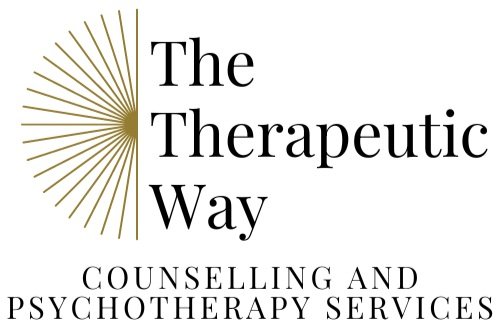Are you a people-pleaser?
What makes someone a people pleaser?
In the past, I would get offended when people called me a people-pleaser. I knew when someone would call me that, it was a criticism. A negative connotation was given to the term. Involuntarily, unconsciously, and unwillingly, we may have become someone trying to accommodate everyone, but when things do not work out, we are the one that ends up being unhappy, guilt-ridden, and at fault. Personally, it was a tough pill to swallow when I realized I cannot please everyone.
Signs you are a people pleaser
If you are, this probably sounds like you.
1. You avoid conflicts. You want to be in everyone’s good books. You try to avoid arguments and anger.
2. You bend over backwards to please others. You tend to dismiss your own feelings and wants. You put other’s first and agree with them even though that is not what you want.
3. You care how others view you. You want to be viewed favourably. You do not want others to see you as selfish.
4. You try to be the peacemaker. You want validation and want people like you.
5. You say “sorry” too often and say “no” not so often. You say sorry even when it is not your fault or when it is not needed. You also have a hard time saying no and expressing your opinion if it is an opposing view.
What makes someone a people pleaser?
1. Conditional love during childhood. You may feel like your parents did not love you or approve of what you do unless you do things a certain way. You may feel like you had to earn their affection and acceptance.
2. Conditional love in relationships. You may have been in a relationship where again you had to earn someone else’s love and affection.
3. Insecurity. By having a low confidence or self-esteem, you seek validation from others.
4. Biology. Certain temperament and psychological disorders can foster people pleasing.
5. Culture. Certain cultural and familial norms have been ingrained where you are told to say or act in a certain way, even though logically it does not make sense.
Stop being a people pleaser
Even if you are a people-pleaser, most of us do not choose to be in this situation. Sometimes, it is the context of what is going on that makes us people-pleasers, where we become the middle person, the one trying to make everyone happy. So how do we get out of this situation?
1. Know who you are. Know your values and your limits. What do you stand for? Knowing who you are, and your values builds character.
2. Learn to say no. By being polite and firm, kind and assertive, calm and confident you will set your boundaries. Through consistency, people will eventually learn where your limits lie. If this is challenging for you, here’s a few things that can make it easier:
Start small. Start saying “no” to the small things. Practice saying it in front of the mirror. Practice until it becomes and feels natural to you.
Offer another alternative. Ex: I don’t feel comfortable doing this, but we can try XYZ instead.
Stand your ground. If you budge, this sets the precedent for future events where others will know you just need a bit of convincing.
Avoid saying “hmm, I don’t know”, “I’m not sure”, “I can try…”, etc.
Do not agree or disagree if you are not sure. Take the time you need to think about it. You will avoid giving a rushed answer which can make you regret your decision afterwards. Try saying something like “Let me think about it and I’ll get back to you tomorrow.”
Express your apologies and gratitude, if and when needed.
3. Know that you cannot please everyone. People do not like hearing the word “no”. You are not responsible for people’s emotions or actions. However, you are responsible for your words. So, pay attention to how and what you say.
4. Engage in self-care and self-compassion. Put you first. YOU!
Here comes the irony, being a people-pleaser is not entirely bad. You care and value your relationship with others. There is nothing wrong with that. But the lack of boundary, neglecting your needs and wants, and inability to say no, can have more negative than positive effects on you. As people-pleasers, we can still accommodate others, but not at the expense of our own needs.
Shikha is a therapist/owner of The Therapeutic Way, Counselling and Psychotherapy Services. She is a relationship and relational trauma therapist who works with individuals, couples, and families who have been on the receiving end of narcissistic abuse, gone through trauma, experiencing relationship issues, and experienced attachment wounds as a child or adult. She uses a trauma-informed and holistic approaches to help her clients.
Thinking of Therapy? Schedule your free 20 mins consultation call to see how we can help.
For more information reach us at info@thetherapeuticway.ca or call/text (289) 635-4660.
Therapy services: Online Anywhere in Ontario; Hamilton, ON; Burlington, ON, Oakville, ON; Mississauga, ON; Milton, ON.
-
Online therapy is as effective as in person therapy. What is most important with any format of therapy is the strong therapeutic relationship between you and your therapist. Online therapy is a good option when coming in-person is not feasible, when you have dependents at home, and it is also more convenient.
At The Therapeutic Way, we offer online therapy and therapy by phone from the convenience of your home. Click here to learn more about our online therapy.
-
Not necessarily. Online therapy and in-person therapy are usually the same cost as their effectiveness are the same. Online therapy can also be most cost effective for the client as transportation is not involved. Now, there are therapy apps or programs that area available to clients that are cheaper than traditional therapy. However, the effectiveness of those programs are questionable, and they are most likely not covered by insurance.
At The Therapeutic Way, we offer online therapy with a registered psychotherapist that is covered by most insurance providers and helps you save the cost of transportation.
-
There are many different types of therapist that you can choose from. Before reaching out to a therapist, it’s important to know what issue you would like to work on. A tip is to seek out a therapist who specializes the issue and problem you are facing with. For example, if you would like to work on trauma, a therapist who focuses on eating disorders may not be the best fit.
It is also important to decide what type of therapist you are looking for, such as gender, experience, their approaches to therapy, etc. It’s also a good idea to check with your insurance provider which type of therapist they cover. A lot of therapists offer free consultation calls for you to decide they are a right fit.
At The Therapeutic Way, we specializes in relationship issues, relational trauma, narcissistic abuse recovery, and attachment wounds. We work with adults, couples, and families over the age of 16.
-
The type of therapy that is best for you, depends on you as a person and the reason you are seeking therapy. There are different types of therapy, such as somatic-based therapy, cognitive behavioural therapy, trauma-informed therapies, holistic therapy, existential therapy, and more. The type of therapy that is right for you will depend what you are looking for. While you may have an input in this, majority of the time the therapist will know what is best suited for you and will let you know.
At The Therapeutic Way, we work with clients using an integrative approach to therapy, meaning using different modalities to suit your needs. We use a trauma-informed, holistic, and relational approach to working with you. Click here to learn more.
-
The term psychotherapy and counselling are often used interchangeably with some slight differences. Psychotherapy refers to the treatment based for psychological disorders and mental health issues, such as depression, anxiety, PTSD, etc. Counselling refers to wellness support and providing insights and clarity which leads to growth or personal betterment. At The Therapeutic Way, we provide both psychotherapy and counselling.
-
The difference between psychotherapist, psychologist, and psychiatrist, depends on education and scope of practice.
Psychotherapist, psychologist, and psychiatrist can provide therapy called talk therapy.
A psychotherapist can provide therapy under the College of Registered Psychotherapist of Ontario, a psychologist can provide therapy under the College of Psychologists of Ontario, and a psychiatrist can provide therapy under College of Physicians and Surgeons of Ontario.
Difference:
Psychotherapist Education: Master’s Degree or higher
Psychologist Education: PhD or PsyD.
Psychiatrist: MD
————
Psychotherapist: Can’t diagnose
Psychologist: Can do assessment and diagnose
Psychiatrist: Can do assessment, diagnose, and prescribe medication
————
Psychotherapist Training: Counselling and focus on therapy techniques
Psychologist: Focus on clinical research and assessment
Psychiatrist: Use medical treatment such as prescribing medications for mental health conditions
Before seeking help, it’s important to know what you need and are seeking. A consultation call can help you decide.
At The Therapeutic Way, we are registered psychotherapist with the College of Registered Psychotherapist of Ontario.

